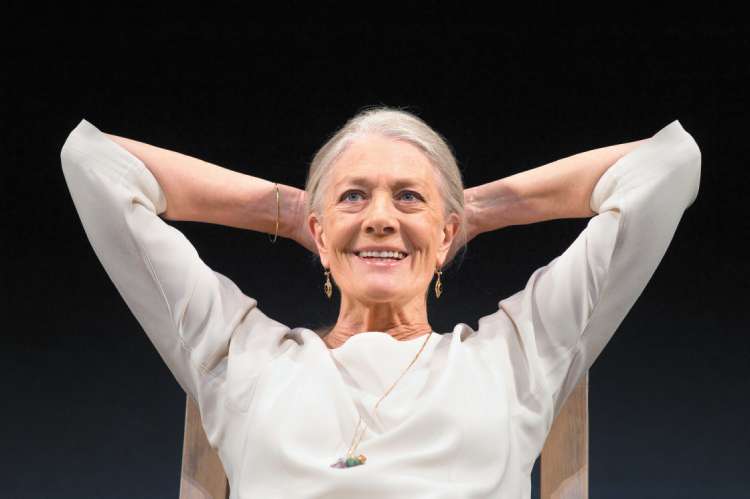Thomas Sutcliffe: Spare me this theatrical piety

Sitting in the Lyttelton Theatre the other day, watching the first night of Joan Didion's The Year of Magical Thinking, I was momentarily distracted from what was happening in front of me by something going on behind me, namely an audible mutter of rebuke from one theatre-goer at the noisy bronchial honking of another. I don't know whether Vanessa Redgrave noticed, up on stage, but quite a lot of the rest of us did – and I'm told the offending party issued not a peep or a snort for the rest of the performance – embarrassment having effected a mucosal clearage that repeated coughing could not.
This kind of thing isn't exactly unheard of in London theatres, of course, but it was heard much more clearly on this occasion because of the nature of the production – a monologue in which Didion, or her dramatic proxy, tells the story of a dreadful double bereavement, in which she loses first her husband and then her daughter. With just one actress in the big open spaces of the Lyttelton stage, there wasn't a lot of concealing aural clutter coming from in front of us. Indeed, there were pensive pauses and gaps in speech that were perfect for those who like to time their intestinal or nasal gurglings so that as many people as possible can share them.
But I did wonder, as we were filing out from the standing ovation that concluded the evening, whether something else had been going on in this altercation – whether the offence hadn't simply been against theatrical good manners but something more hallowed and sacrosanct. Because I haven't felt quite such a churchy atmosphere in a theatre for a very long time. It isn't difficult to understand why, really – because The Year of Magical Thinking provides a kind of perfect storm scenario for intense theatrical piety. First of all it's performed by Vanessa Redgrave, worshipped (just) this side of idolatry by quite a lot of theatregoers, and an actress, in any case, who brings an air of Delphic transmission to almost all of her performances. She could be appearing in Mother Goose and there would be members of the audience watching in rapt adoration.
But then that is further compounded by the fact that the play is about real deaths and a real grief – subjects that provoke a kind of instinctive devotional gravity in any case. This isn't just an entertainment, the thought runs, it's a kind of ceremony of sharing – and what's required of us is respectful attendance. Redgrave is being brave to take on such a huge rule – such an exposing role – and Didion is being brave to have detailed her own confused grief so clearly. So we become a congregation ...not an audience.
This is sometimes stated as an explicit ambition by the more urgently transcendent believers in theatre. A theatre is a sacred space, they argue, in which deep kinds of communion can take place. But though that's sometimes true, the experience of actually watching The Year of Magical Thinking made me wonder whether anticipatory reverence doesn't make such breakthroughs less, rather than more, likely. There's something curiously asphyxiating and airless about a theatrical event that comes armoured not by self-regard but by the audience's insistence that it will be a success, come what may. And the dangers of undue piety seemed to me to be exemplified by the text of Didion's play as well as this particular production of it. As astute as it is about the delusions of the recently bereaved – their hope that some kind of reversal might be effected – it didn't really take any risks with ignoble components of bereavement, the way that survivors may find themselves afflicted by unseemly glee at survival or may find that a sense of freedom is distressingly entangled with the genuine pain of loss. It didn't really, in short, take any chances that it might upset the audience – except in ways that were in its favour.
I can't think of a moment in the play, in short, where you don't know what you're meant to think of it (even if you find that you can't). Everything about the production – its stark setting, its meaningful ellipses, most particularly the way in which the speaker directly addresses the audience from time to time to contradict its unvoiced thoughts – tell us how and when we are expected to react. And, on the night I went it seemed most people were happy to obey. The natural desire of an audience – that the evening should go well – was compounded with a different kind of wishful thinking, about what kind of people we were to be moved by the right things. And woe betide you if you got a tickle in your throat and coughed at the wrong moment.

Join our commenting forum
Join thought-provoking conversations, follow other Independent readers and see their replies